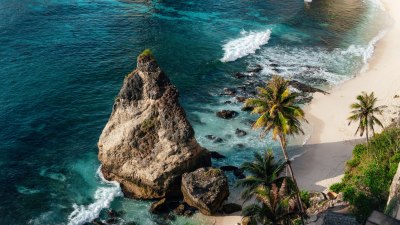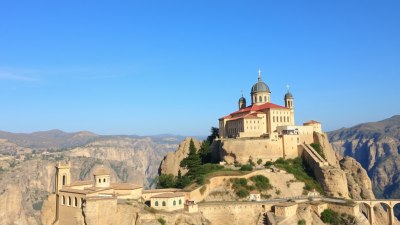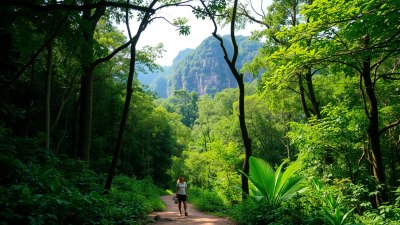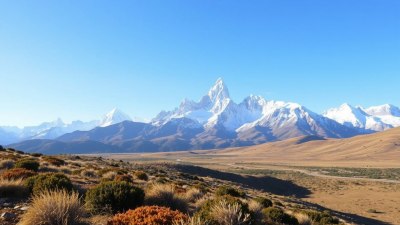What Ancient Travelers Can Teach Us About Modern Exploration
Explore the wisdom of ancient travelers and their lessons for today's explorers.
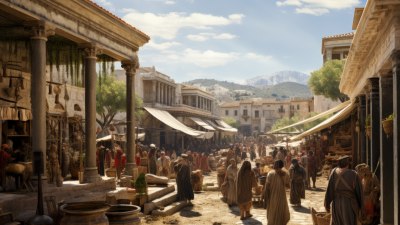
The pursuit of exploration is one of humanity's oldest ambitions, dating back to the time of ancient civilizations. From the voyages of the Polynesians across the vast Pacific Ocean to the legendary adventures of Marco Polo, ancient travelers not only ventured into the unknown but also laid the groundwork for future explorers. In this article, we delve into the lessons ancient travelers can teach us about modern exploration, their methodologies, and how their experiences can guide contemporary adventurers.
The Spirit of Adventure
At the heart of exploration lies a spirit of adventure. Ancient travelers were driven by curiosity, a desire to discover new lands, and a yearning to understand the world beyond their immediate surroundings. This intrinsic motivation remains essential for modern explorers. Just as Odysseus embarked on a journey full of challenges, today's adventurers must embrace uncertainty and take calculated risks. By channeling the ancient spirit of exploration, modern explorers can approach their journeys with the same fervor and courage.
Navigational Techniques of the Ancients
One of the most significant contributions of ancient travelers is their mastery of navigational techniques. The Phoenicians, for instance, were pioneers in maritime navigation, utilizing the stars, the sun, and ocean currents for their voyages. They adopted methods that included reading the winds and understanding the behavior of marine life. Modern explorers can learn from these ancient practices by incorporating natural navigational aids into their toolkit, allowing them to develop a deeper connection with the environment they are exploring.
Respect for Nature
Ancient travelers had a profound respect for nature and its forces. They understood that the environment was a powerful ally, but also a formidable adversary. This respect is evident in the writings of explorers like Ibn Battuta, who emphasized the importance of adapting to local customs and understanding the landscapes he traversed. Similarly, modern explorers must cultivate a sense of stewardship towards nature. Sustainable exploration practices that prioritize eco-friendliness can help preserve the very landscapes and cultures that adventurers seek to experience.
Cultural Exchange and Learning
Exploration has always involved cultural exchange. Ancient travelers often documented their experiences, interactions, and the knowledge they gained from different societies. For instance, Zheng He’s voyages not only expanded Chinese trade networks but also facilitated cultural exchanges across Asia and Africa. In today’s globalized world, modern explorers have unparalleled opportunities to engage with diverse cultures. By learning from the customs, traditions, and languages of the regions they visit, explorers can foster mutual respect and understanding. This cultural exchange can enrich personal experiences and promote global harmony.
The Importance of Storytelling
Ancient explorers used storytelling as a means to document their adventures and impart lessons learned along the way. The accounts of Herodotus, often called the 'Father of History,' are filled with narratives that blend fact and fiction, helping to shape the understanding of different cultures. Modern travelers can embrace this tradition by documenting their journeys through various media—blogs, vlogs, photography—ensuring that their stories inspire future generations. Through storytelling, explorers can effectively share insights, foster connections, and encourage others to embrace the spirit of adventure.
Lessons in Perseverance
Exploration is not without its challenges. Ancient travelers faced numerous adversities, from treacherous terrain to hostile encounters. Their resilience in overcoming these obstacles is a testament to the human spirit. Modern explorers can draw inspiration from the perseverance displayed by figures like Ernest Shackleton, whose Antarctic expedition is a classic example of grit and determination. Today, adventurers may encounter their own set of challenges—be it extreme weather, logistical issues, or physical exhaustion. By cultivating a mindset of resilience and adaptability, modern explorers can successfully navigate the trials that come their way.
The Role of Science and Technology
While ancient explorers relied on basic instruments and observational techniques, they laid the foundation for modern scientific approaches to exploration. The use of compasses, astrolabes, and maps evolved into the sophisticated technology we have today, including GPS and satellite imaging. This evolution emphasizes the importance of scientific research and technological advancement in modern exploration. Explorers today must remain abreast of new technologies that can enhance their journeys. By leveraging advancements in mapping, communication, and safety equipment, adventurers can embark on explorations that were once deemed impossible.
Ethics of Exploration
As we venture into uncharted territories, ethical considerations become paramount. Ancient travelers often encountered indigenous populations and navigated complex social landscapes. The lessons learned from these encounters highlight the importance of ethical exploration—prioritizing consent, understanding local customs, and minimizing impact. Extreme caution should be exercised to avoid the exploitation of local resources or cultures. Modern explorers must approach exploration with sensitivity to historical contexts and social dynamics, ensuring they contribute positively to the communities they engage with.
Courage to Challenge the Status Quo
Many ancient travelers were driven by a desire to challenge the status quo, push boundaries, and inspire others. Their journeys often transcended mere exploration to ignite movements of change and enlightenment. Modern adventurers can learn from this courage to question norms and address injustices. Whether it is environmental advocacy, cultural preservation, or social equity, today's explorers have the power to use their platforms to effect meaningful change in society. By championing causes, they can inspire others to join in the pursuit of a better world.
Carrying the Legacy Forward
As we look toward the future of exploration, the wisdom of ancient travelers serves as a guiding light. Their lessons on adventure, respect for nature, cultural exchange, storytelling, perseverance, technology, ethics, and courage can shape the way modern explorers approach their journeys. By honoring and applying these timeless teachings, we not only enrich our own experiences but also pave the way for future generations of explorers to embark on their own adventures. Thus, in every expedition we undertake, we carry forward the legacy of our ancient predecessors, ensuring that the spirit of exploration remains vibrant for years to come.


